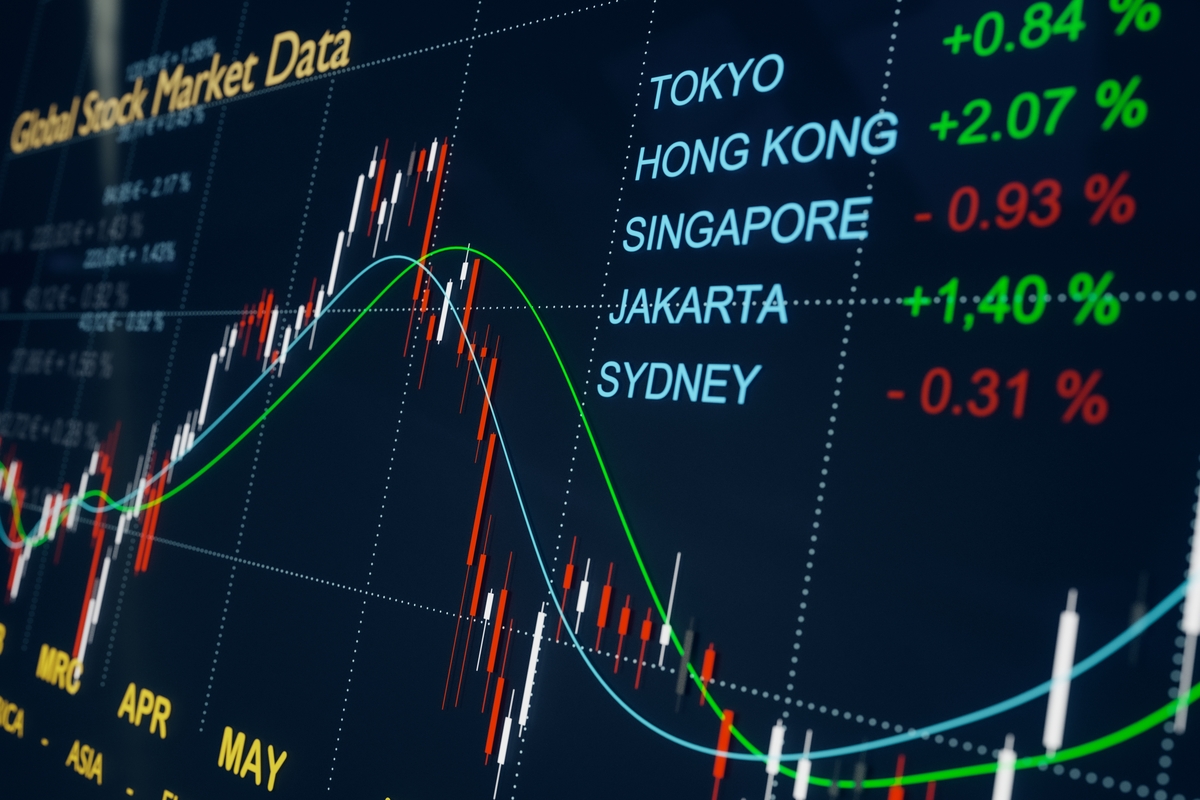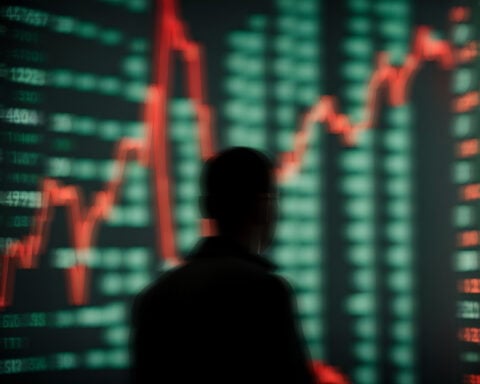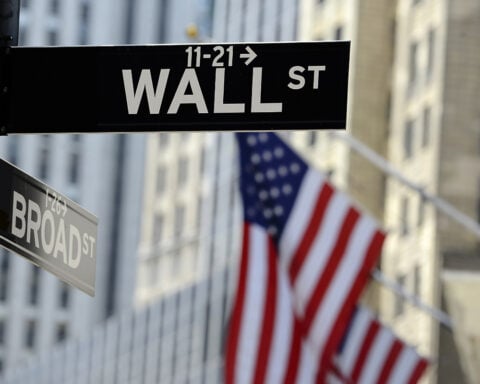Asian equity markets exhibited a mixed performance on Friday following a third consecutive day of Wall Street slump in response to a hike in British interest rates.
Indices in Shanghai and Hong Kong made gains while Tokyo’s index retreated. Oil prices showed a mixed trend as well.
After the Bank of England raised its primary lending rate to its highest level in 15 years on Thursday, Wall Street’s standard S&P 500 index dropped by 0.3%. The Bank suggested that these high rates might persist for some time.
Anxiety among investors was already heightened due to Fitch Ratings’ downgrading of U.S. government debt’s credit rating a day before, even though analysts remarked that the modification would have little impact.
“U.S. stocks are faltering as the global bond market sell-off intensifies,” commented Edward Moya from Oanda in a report.
The Shanghai Composite Index climbed by 0.1% to 3,284.82 after the new governor of China’s central bank reassured real estate developers of their ability to raise more funds through bond sales, thus further alleviating the 2020 debt restrictions that plunged the sector into turmoil.
Hong Kong’s Hang Seng improved by 0.8% to 19,585.55, while Tokyo’s Nikkei 225 dropped by 0.1% to 32,130.94.
There were minor declines in Seoul’s Kospi (less than 0.1% to 2,604.49) and Sydney’s S&P-ASX 200 (0.2% to 7,296.80).
The S&P descended to 4,501.89 on Wall Street following its most significant single-day fall in four months. The Dow Jones Industrial Average and the Nasdaq composite experienced losses, decreasing by 0.2% to 35,215.89 and 0.1% to 13,959.72, respectively.
Investors are keenly observing if the U.S. economy can ward off a recession despite several rate hikes in the past year to curb inflation.
The Bank of England cautioned against prematurely concluding its cycle of rate hikes as certain inflation risks, including rising wages, were “starting to materialize.” The bank projects inflation to decline to 4.9% by year-end, still more than double its 2% target.
“Proclaiming the end to all this is premature,” remarked BOE governor Andrew Bailey.
Higher-than-expected U.S. hiring led traders to adjust their recession timeline expectations and boosted hopes of a less severe economic downturn. However, robust hiring could prompt the Fed to enact further rate hikes, considering the potential inflationary pressure it could introduce.
An update on U.S. employment is expected on Friday from the U.S. government. Federal Reserve Chair Jerome Powell mentioned that this is a significant factor the central bank considers when deciding on rate hikes.
Critics argue that Wall Street has too hastily reached a consensus that inflation will continue to subside and that the Fed could potentially cease its rate hikes and even commence rate cuts early next year.
Treasury yields in the bond market surged, drawing funds out of equities.
The yield on the 10-year Treasury, the gap between the market price and the payout at maturity, increased to 4.18% from 4.09% the previous day. This represents a rise from 2.75% a year ago.
Shares in Qualcomm, a smartphone processor chip manufacturer, plummeted by 8.2% following lower-than-anticipated spring revenue, despite profits exceeding predictions. On the other hand, Clorox, a cleaning product manufacturer, saw a 9% jump in shares following better-than-expected profit and revenue.
Exxon Mobil’s shares rose by 1.7%, bolstered by increased crude prices after Saudi Arabia affirmed its commitment to production cuts designed to boost oil prices.
Market heavyweights Apple and Amazon, two of Wall Street’s most valuable companies, announced their results after trading ended. With both companies having soared more than 45% this year on growth expectations, the pressure to deliver substantial results to justify their stock gains is high.
In energy markets, the benchmark U.S. crude rose 15 cents to $81.70 per barrel in electronic trading on the New York Mercantile Exchange, following a $2.06 surge to $81.55 on Thursday. Brent crude, the standard for international oils, added 9 cents to reach $85.23 per barrel in London after advancing $1.94 to $85.14 in the previous session.
The dollar dropped to 142.54 yen from Thursday’s 142.71 yen, while the euro strengthened to $1.0957 from $1.0942.
As markets grapple with the consequences of fluctuating rates, earnings, and economic policies, investors worldwide will watch the interplay of these dynamics. Notably, the outcomes from the U.S. government’s employment update and the continued performance of Wall Street giants, Apple and Amazon, could dictate the direction of global stock markets in the near term. Ultimately, the evolving landscape of international finance continues to test the resilience and adaptability of investors, emphasizing the importance of sound, evidence-based decision-making.







